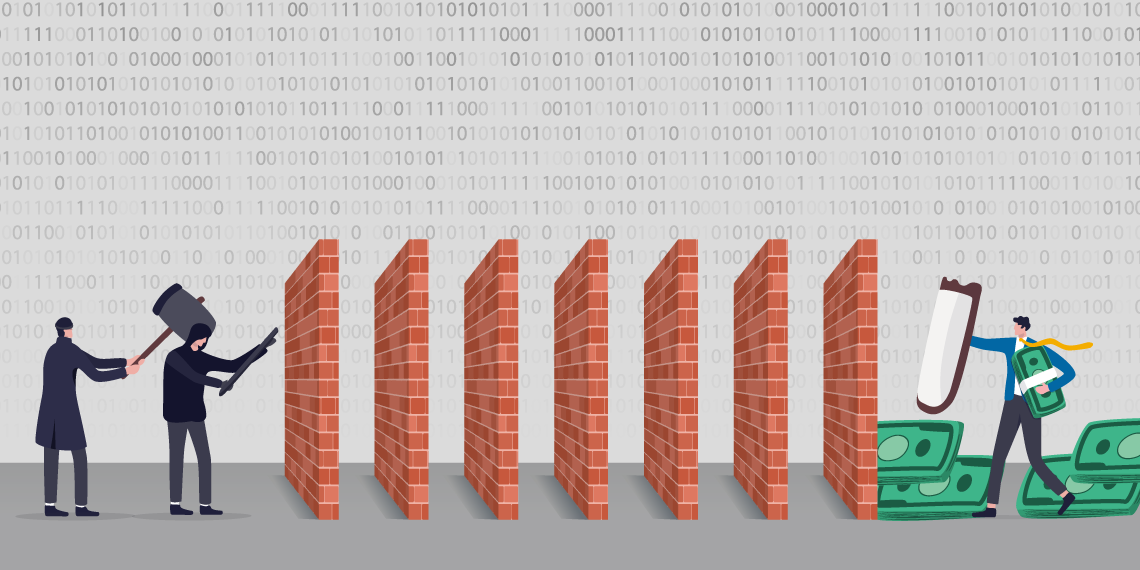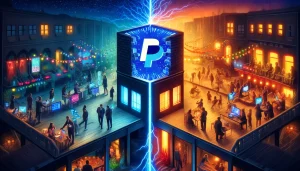NFTs have taken the world by storm over the last year. This new technology is a blockchain-backed form of ownership covering digital and real-world items like art, music, games, and real estate. As popularity continues to soar, it has inspired a digital land grab similar to the gold rush of the 1800s.
The demand for NFTs has prompted creators to explore selling their collectibles in digital marketplaces. How does the average person get in on the trend without losing their money and NFTs? We will outline the steps you need to take to stay safe.
How to protect your money
The decentralized nature of blockchain technology where NFTs are stored means transactions face less scrutiny. It also makes it easier to get scammed. Here are some things to be aware of to protect your money during the NFT rush:
1. Watch out for wash trading
Wash trading occurs when people hike the price of their NFTs, list them for sale, and then set up a “fake” account to buy the NFTs by themselves. Essentially, they sell their NFTs to themselves to create faux demand and value.
2. Do your research
There’s always something new to learn in the NFT space. Research projects and their social media profiles before buying. Look out for blue check marks on OpenSea to verify the collections are official. You can also verify NFT smart contracts to view transaction history and confirm creator and owner information.
3. Avoid pump and dump
Every investor wants a piece of the NFT pie, but be careful not to pump large sums of money into projects that won’t yield returns. Research, learn the NFT space, and make reasonable investments.
How to protect your NFTs
As with any new technology, scammers and bad actors lurk, looking for vulnerable targets. There are things you can do to minimize your risks. Here are some steps to protect your NFTs and investments:
1. Use a non-custodial crypto wallet
Non-custodial wallets (also known as hot storage) are typically protected by a 12 to 24-word seed phrase (never share this with anyone!) and a combination of touch ID and passwords. Although it isn’t hacker-proof, it is a recommended method to store your NFTs.
Never keep your NFTs on an exchange or marketplace. Consider getting a VPN to hide your IP address and encrypt your internet traffic as an extra layer of security. In addition to storing your NFTs in the wallet, it’s also essential to protect any NFTs you own by securely backing up the wallet that holds the keys to your NFTs.
2. Get a cold storage device
Cold storage (an offline or external drive) is the most secure way to store your NFTs. By keeping your digital assets on these devices, scammers cannot access them without access to your physical cold storage device and passcode. With cold storage, you sacrifice convenience for security. Every time you want to do business on the blockchain, you have to connect and decrypt your cold wallet. However, these extra steps are nothing compared to the security they provide.
3. Trust your instincts
If a deal seems too good to be true, assume it is. The crypto world is full of scammers, and even the most security-conscious can be victims. Stay vigilant, keep up-to-date on current scams, and trust your instincts if something doesn’t look or feel right.
As the appeal for NFTs continues to rise, there are opportunities to earn high returns in a short amount of time. It makes NFTs attractive but also raises safety concerns. If you decide to join the NFT rush, follow the steps above and only take calculated risks to protect your money and your NFTs.
4. Authenticate your NFTs with REV3AL
REV3AL technology’s on-chain and off-chain multi-layer authentication and self-verification features can protect your NFTs from alteration and duplication. These features deter scammers by installing impenetrable security layers to limit unauthorized access to your NFTs and funds.
We incorporate additional dynamic layers of variable data within each feature to further enhance the overall protection system. These systems protect users from unauthorized attempts to access or distribute their digital assets.





